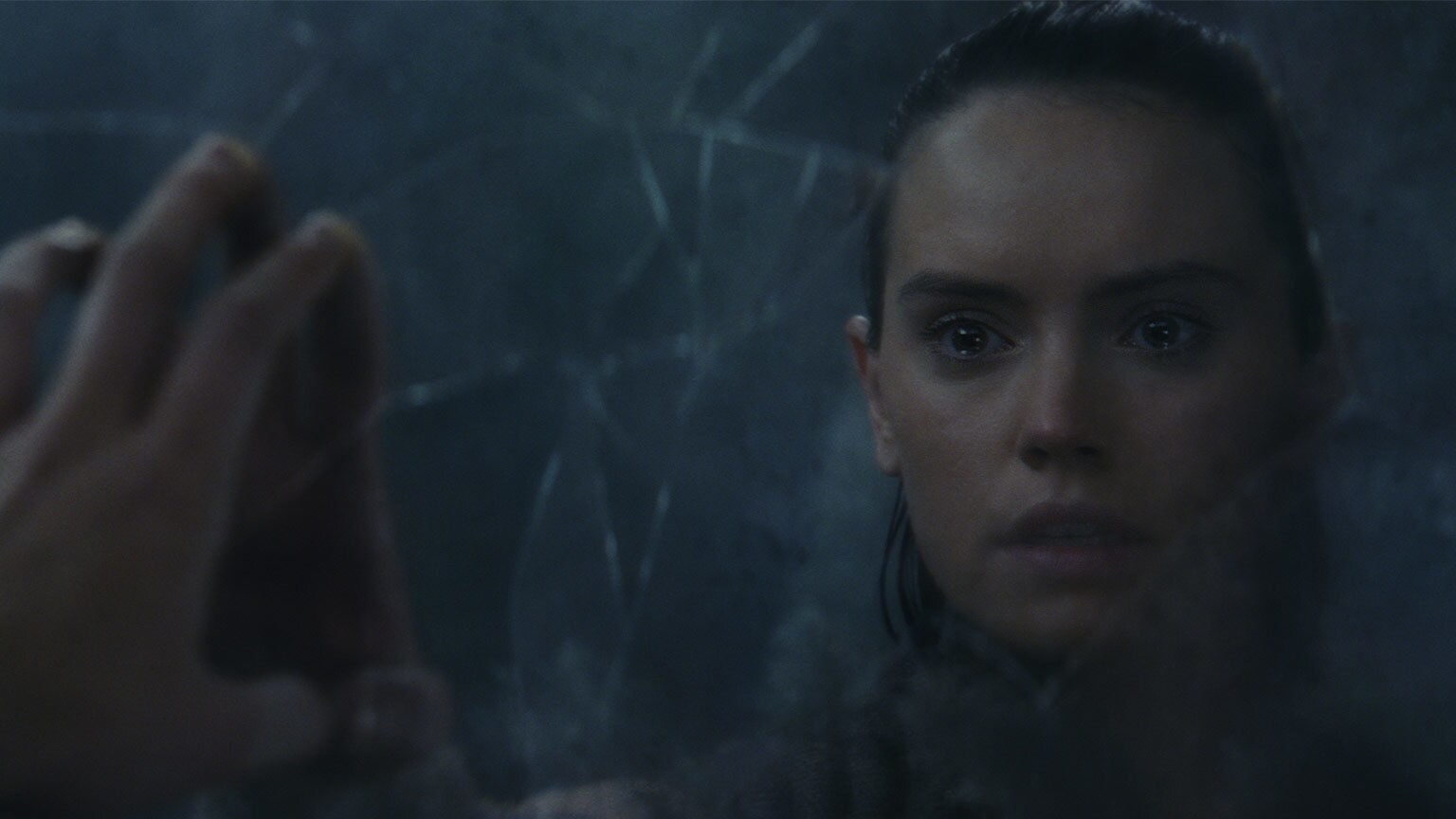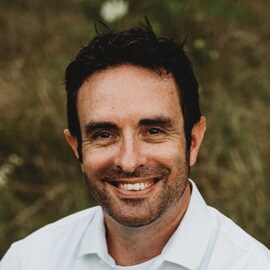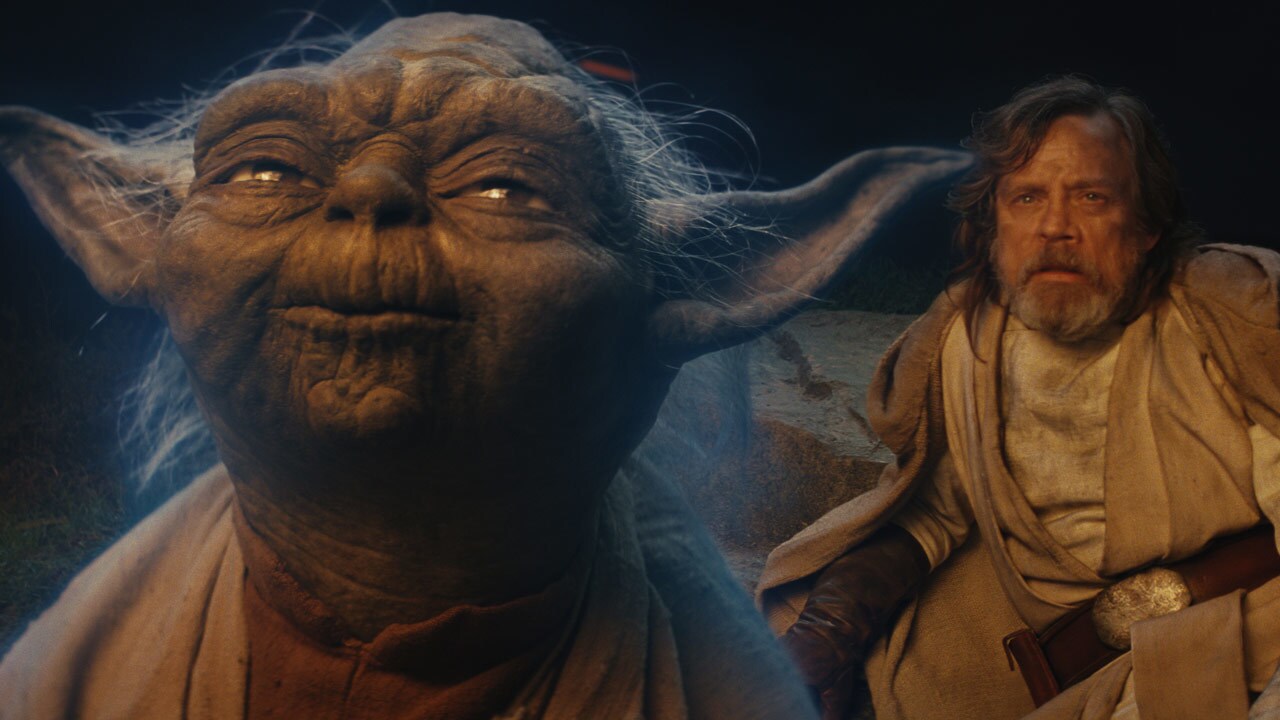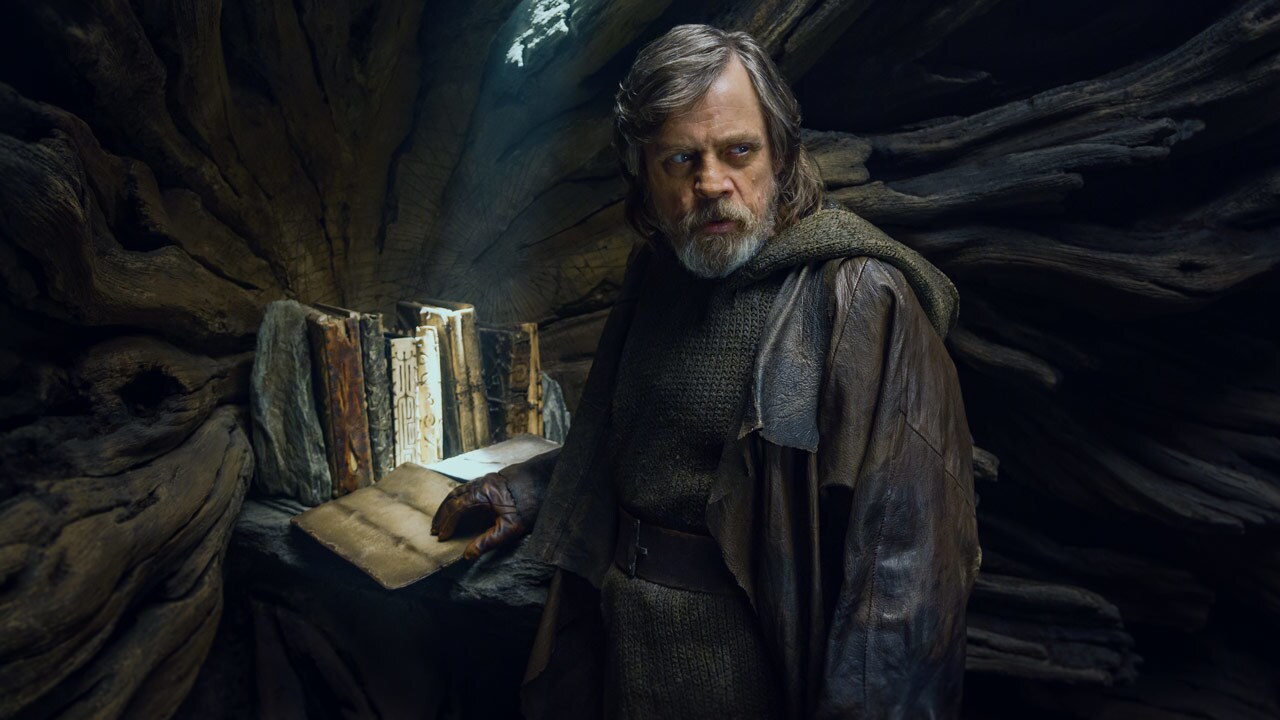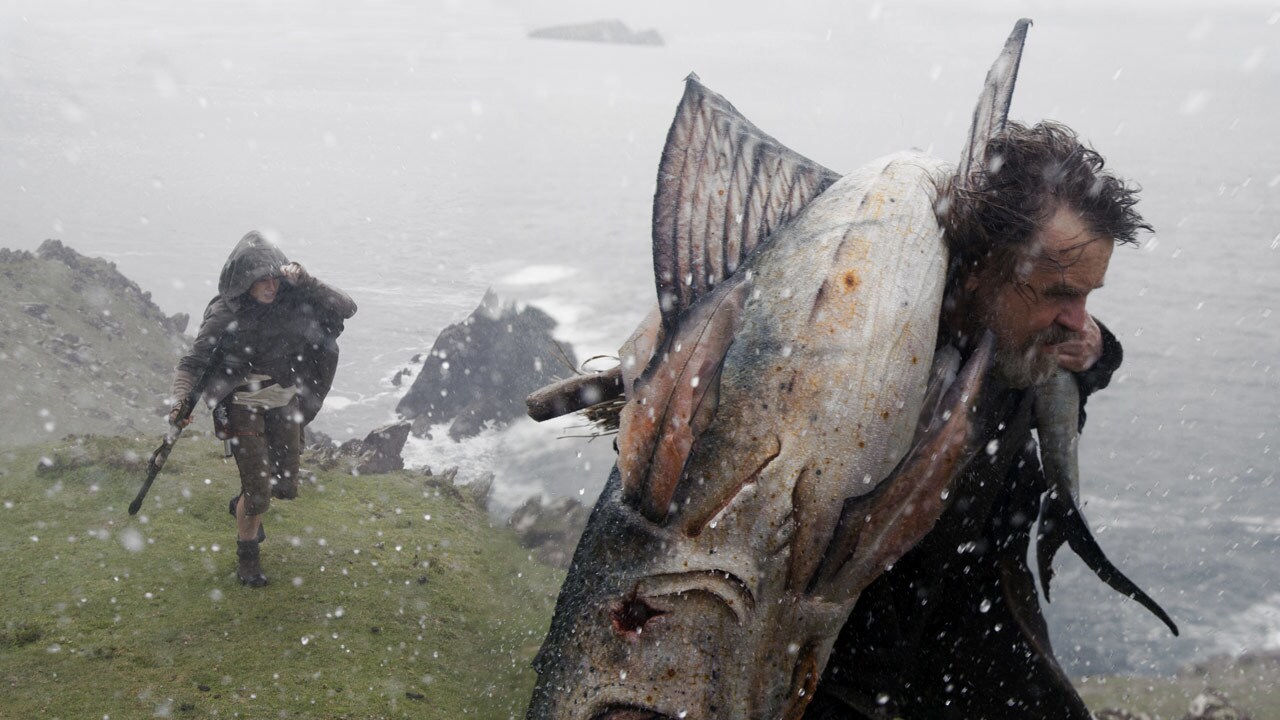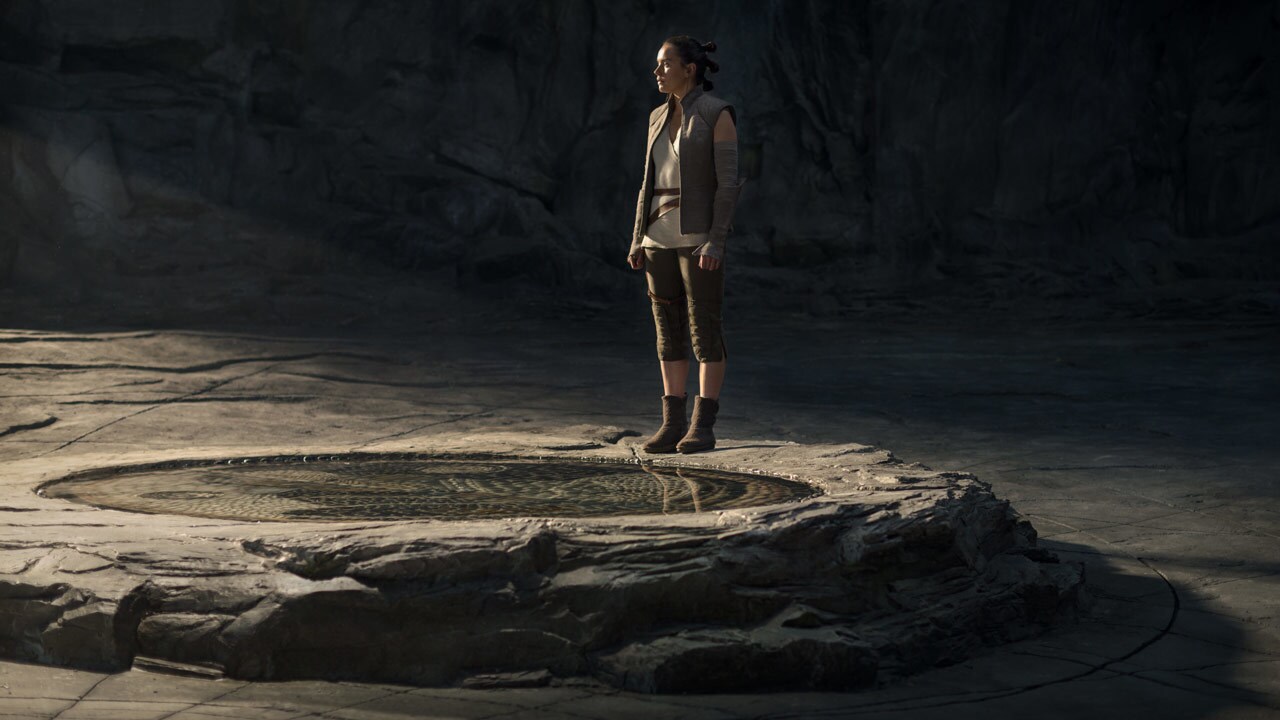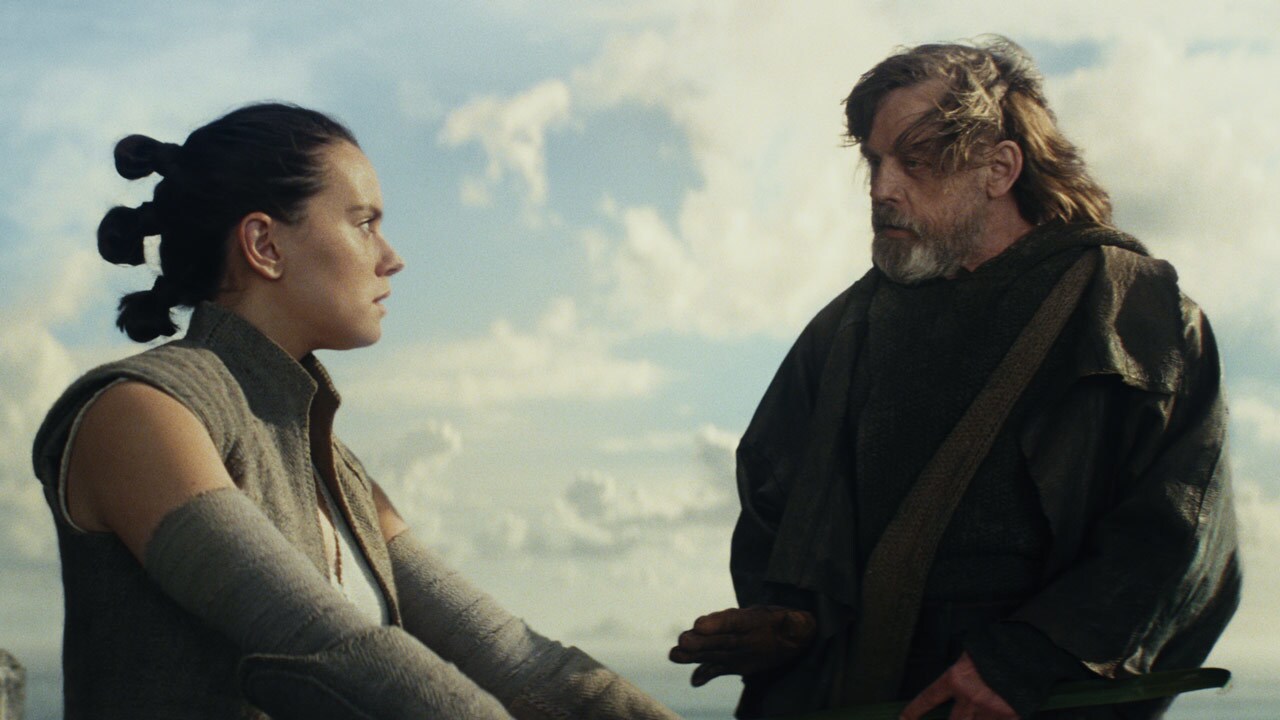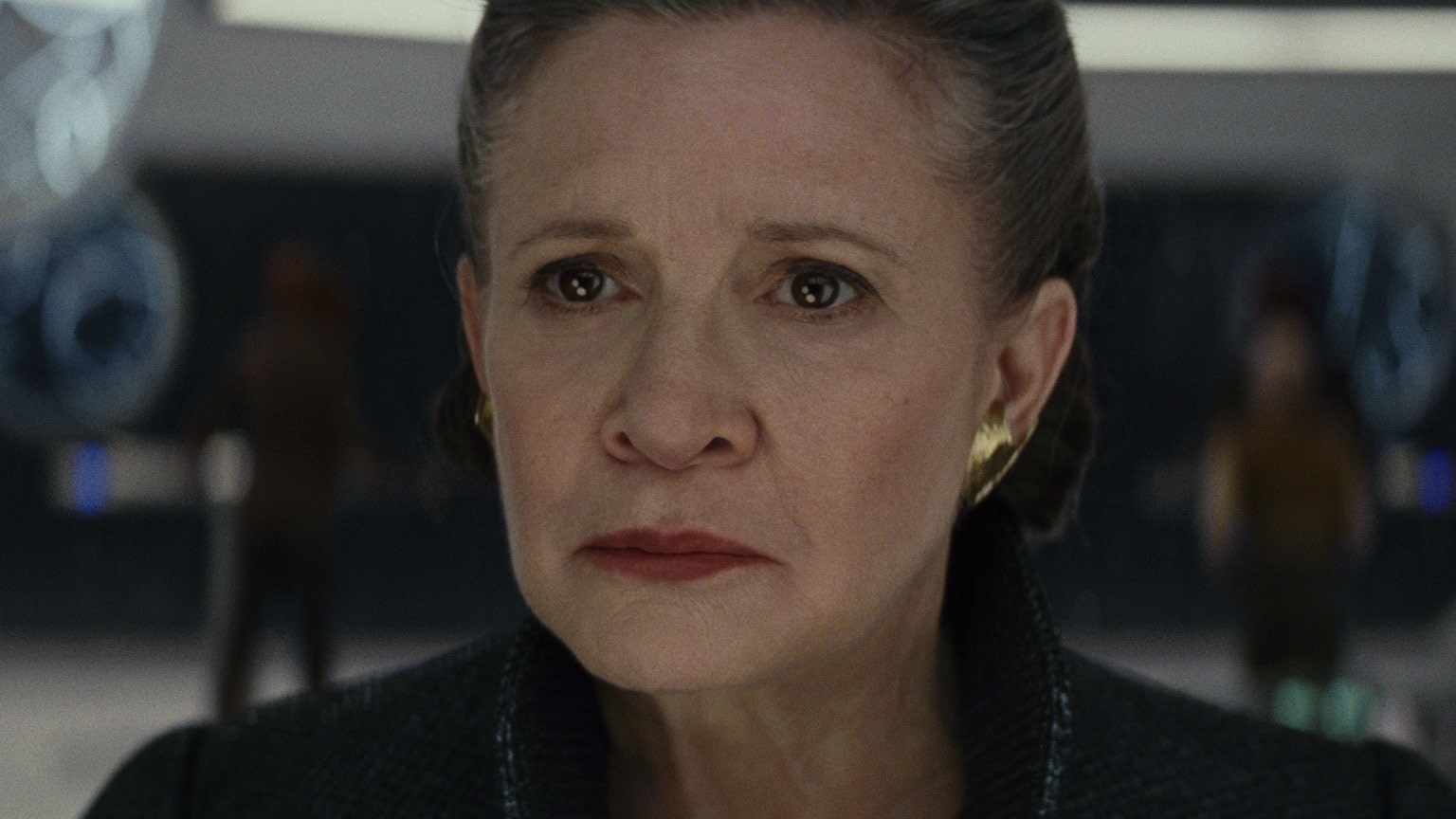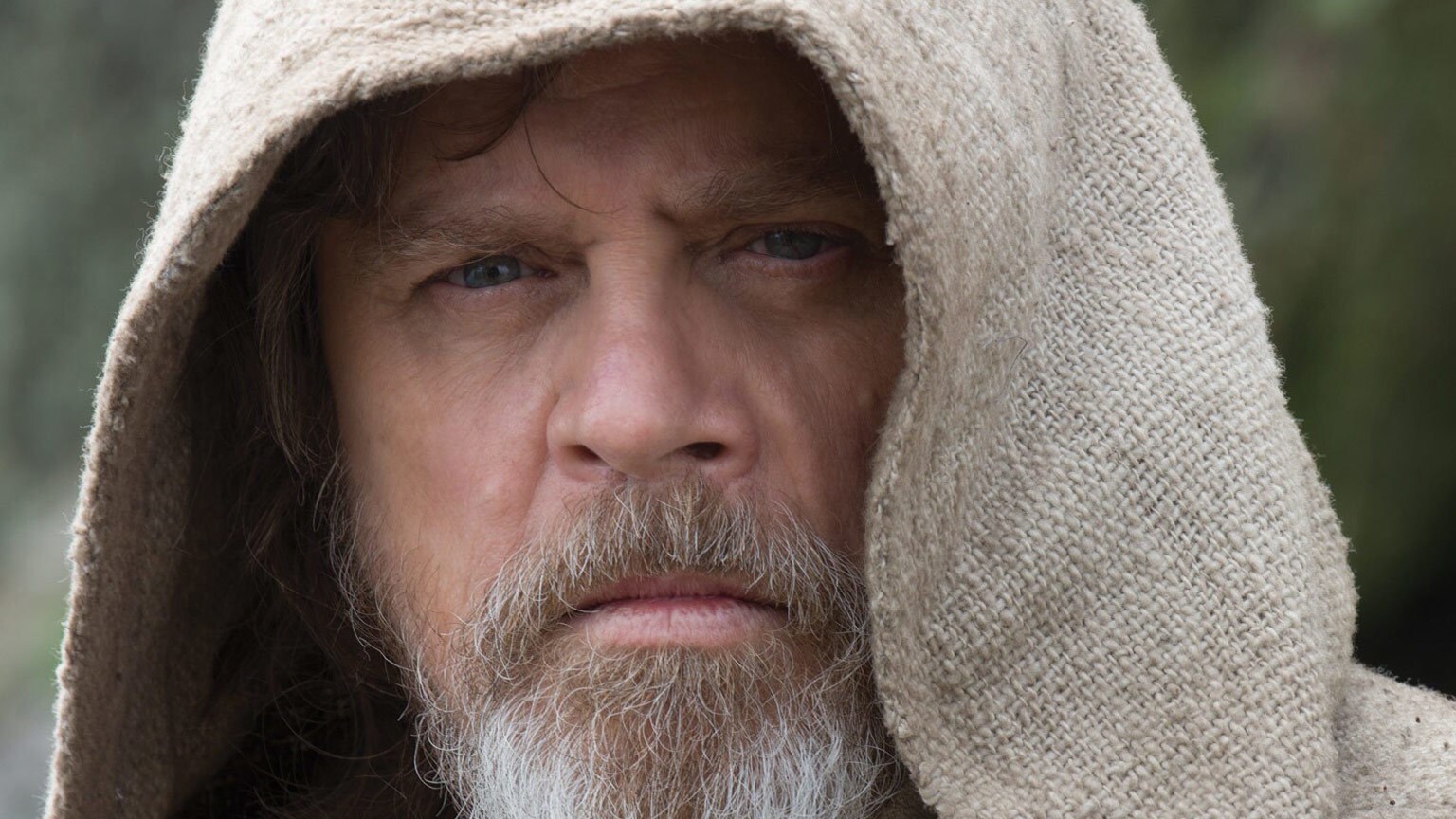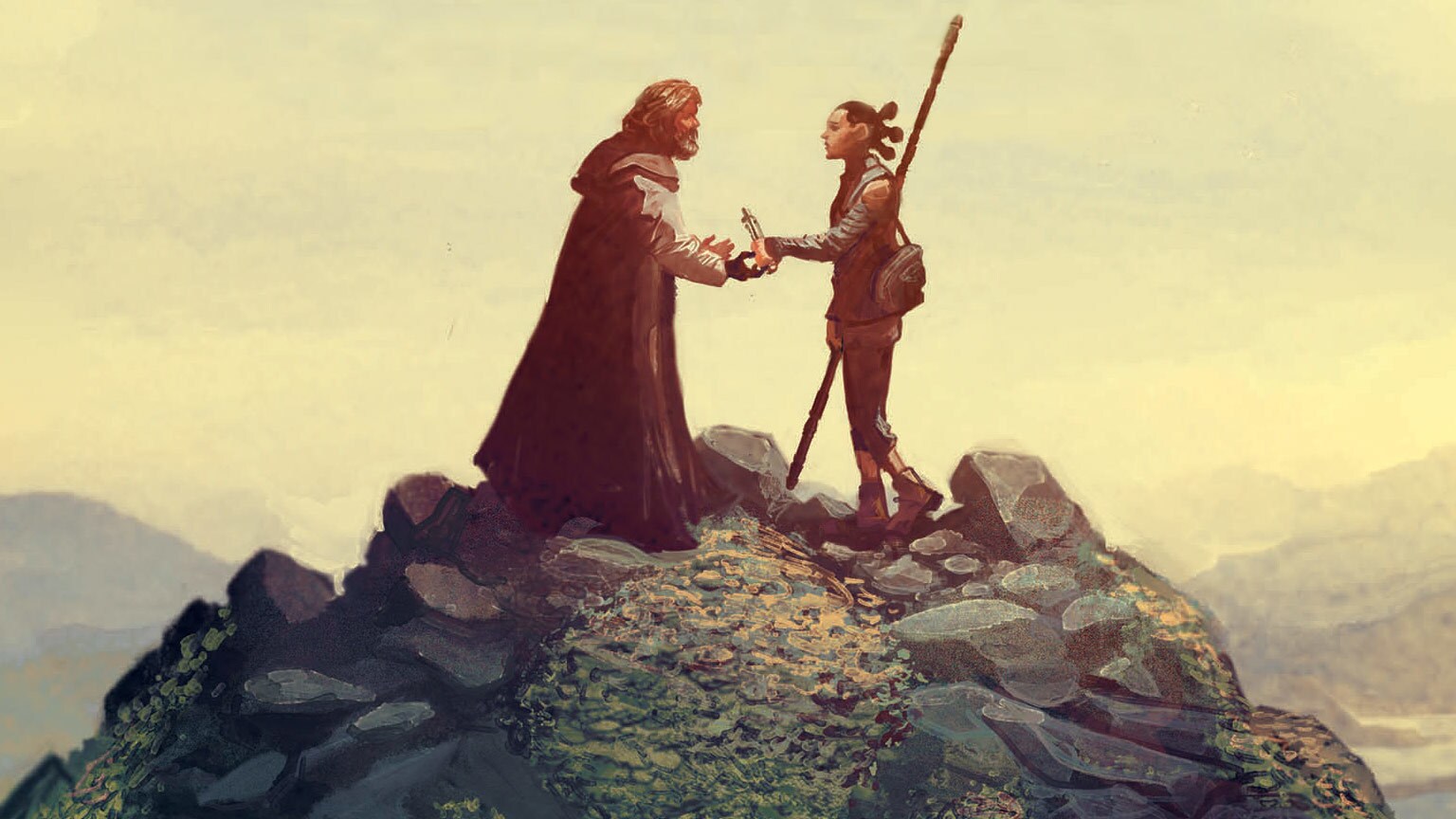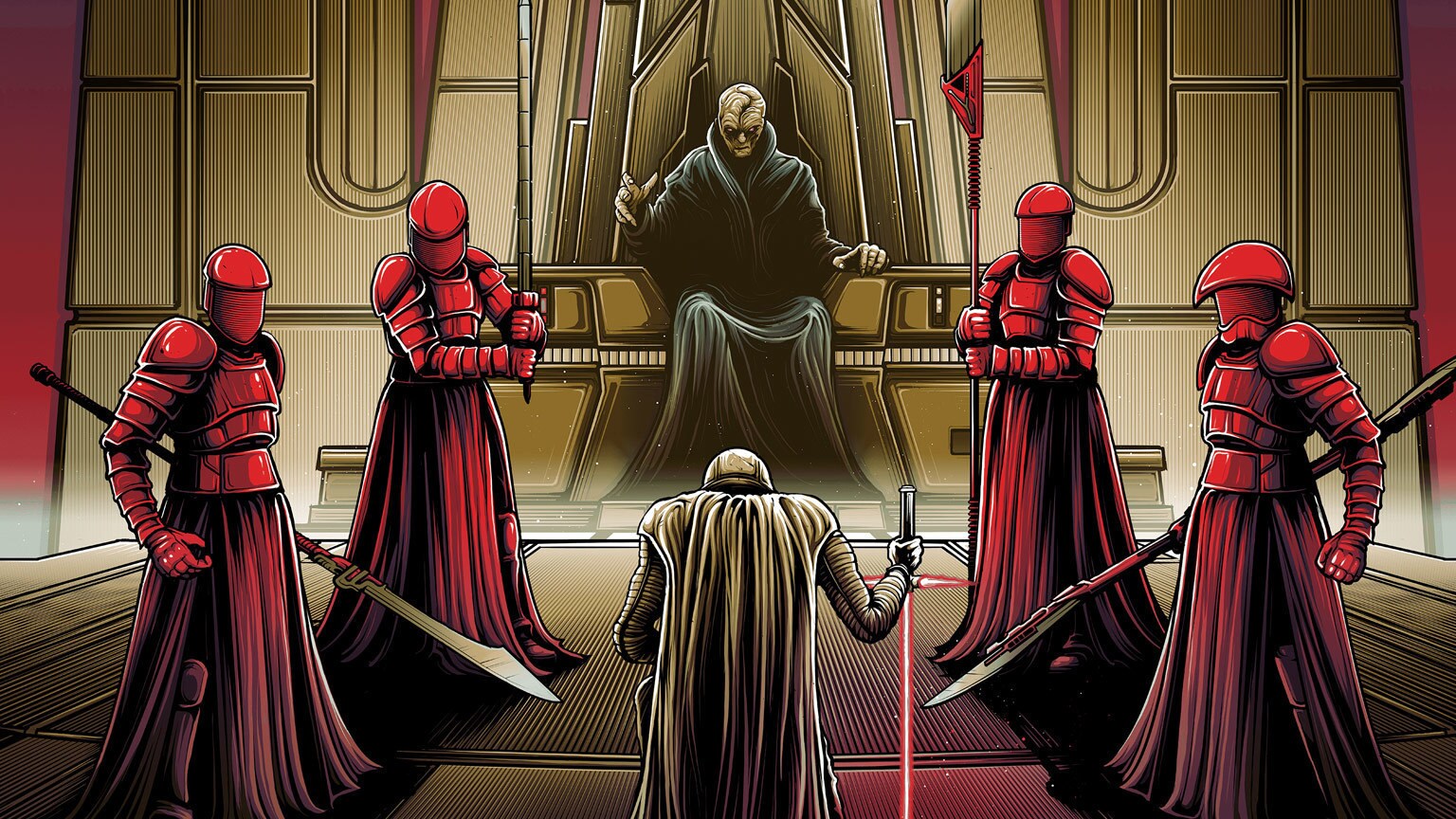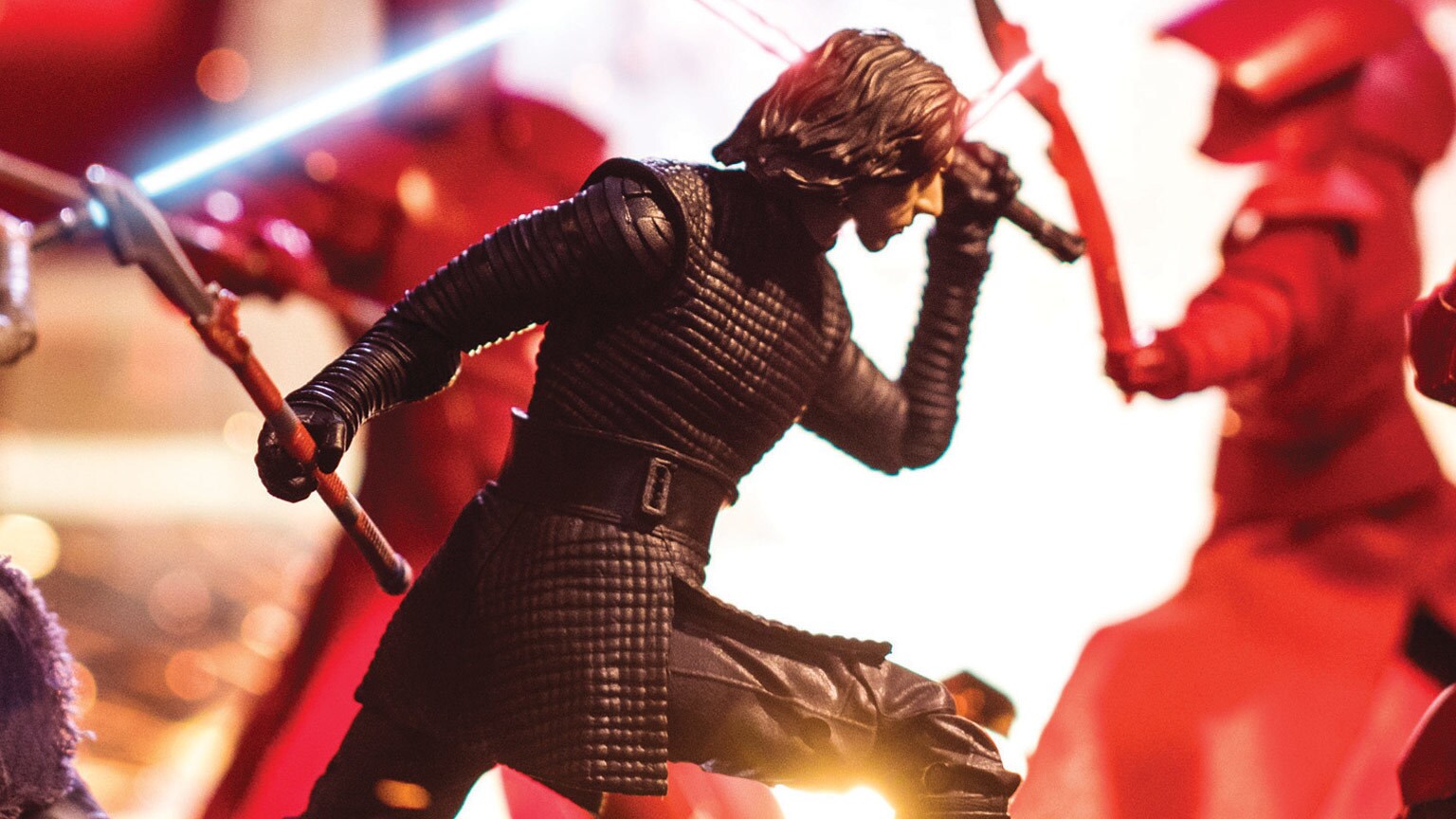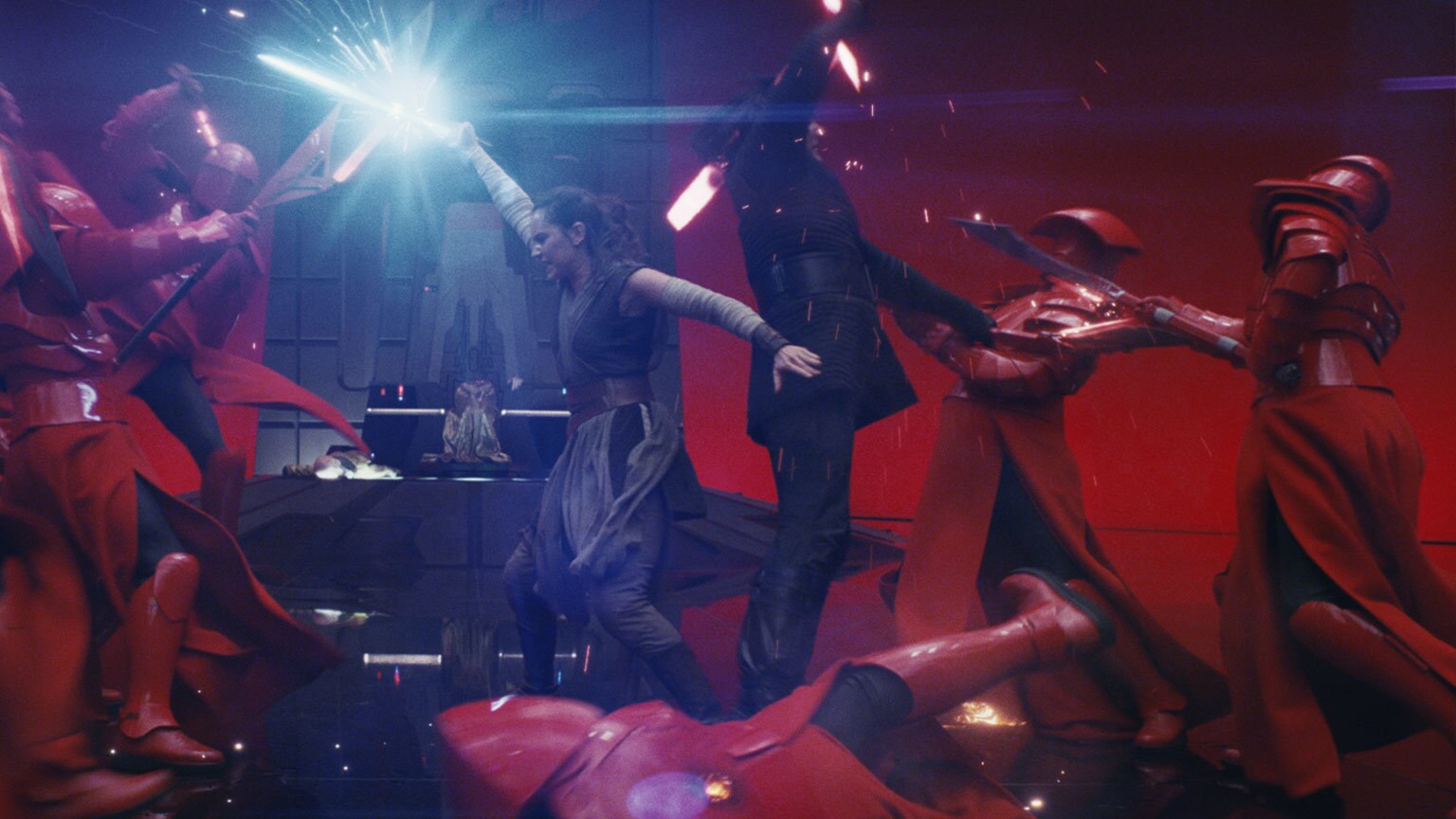This piece is solely the opinion of the author -- and not officially official.
Teaching and learning is among the most prevalent motifs in Star Wars, particularly in Star Wars: The Last Jedi. The mentor figure instructs the willing student in the ways of the Force. However, it’s not that cut and dry in Rian Johnson’s film. It’s much more of an unorthodox process for the Force-wielders on Ahch-To, and provides a masterful commentary on what pedagogy is all about. The line between teacher and learner blurs, as well as the lessons learned, and they often come from unexpected places.
Yoda
Perhaps no Star Wars instructor demonstrates this better than Yoda. He appears to call down lightning on the uneti tree and destroys the bound library of Jedi knowledge, much to Luke’s shock and consternation. In essence, Yoda appears to tell Luke that everything the curmudgeonly Jedi Master has held sacrosanct doesn’t matter all that much. On an initial pass, this may seem contrary to the diminutive Jedi Master’s previous lessons, but this is not the case at all.
Yoda is modeling a valuable tool used by many educators: adaptability. As a teacher, you may have an airtight lesson, but if you do not know your students, the lesson may fall flat. Hence, the need to modify the initial plan to best serve the needs of the learner. Yoda knows Luke is hurting, encourages him to take himself a little less seriously, and tells him failure is the best teacher. An unconventional philosophy for some, but Yoda sees things in a much more enlightened way. His appearance in The Last Jedi is paramount to understanding the unconventional nature of teaching for these characters.
Luke Skywalker
Luke’s unorthodox view of the Jedi way served him well at one point in his life, even leading him to bravely throw down his lightsaber in the Emperor’s throne room. Since that time, his faith in himself and the Force has waned; he believes the Jedi viewpoint and philosophy is part of what led to his perceived failure with Ben Solo and his plan to resurrect the Jedi Order. He has forgotten how to adapt and modify his point of view. He thinks he failed the galaxy, and is temporarily incapable of seeing things from a different perspective.
Luke Skywalker would rather endure a life of mediocrity than look directly in the mirror at who he is. He goes so far as to close himself off from the Force, which is problematic, considering that the Force is a big part of who the Jedi Master is. Some of the most successful teachers are lifelong learners in their own right, but Luke is temporarily incapable of learning from his perceived shortcomings. In short, his failure is complete, or so he thinks.
Ironically, his previous assertion that the Jedi are full of conceit is much more of a revelatory statement about Luke than it is the Jedi Order. Luke blames himself for Ben Solo’s fall to the dark side. His exile is less a personal stance against the Jedi way and is more of a reminder of his perceived failings. Ben Solo made his own choice to turn to the dark side, but Luke does not appear to acknowledge this fact. Instead, he turns to his own pride and conceit, which inadvertently helps catapult the galaxy into further turmoil. Failure is the greatest teacher, but you have to be willing to embrace this, turn from hubris, and learn from your mistakes.
Rey
Fortunately for the Jedi Master, a major catalyst for his turning point comes courtesy of his hopeful student, Rey. The prospective Jedi seeks to learn from the legendary Skywalker on Ahch-To, and she certainly does, but not in the way she originally anticipated. Luke’s persistent refusal to educate Rey in the ways of the Force is a slowly increasing source of frustration for the former scavenger. How can a student learn without a willing teacher? The answer: you learn from their mistakes.
During Rey’s first lesson, and despite Luke’s warning, she ventures into the ominous underground cavern, knowing it contains the dark side of the Force. However, Rey is not motivated by fear like her teacher is, and bravely descends into the cave, ready to face what awaits her. For Rey, her dark side is her fear that the identity of her parents defines her. In many ways, her sense of self is wrapped up in it. Ultimately, she wants to face the reality of the situation, even if the knowledge contained within is potentially unnerving. Where Luke operates under fear, Rey witnesses that mindset will prevent her from unlocking her true potential.
She overcomes, and uses the example of her teacher as a lesson of what not to do. Luke does guide her, but not as she may have initially hoped for. And, as a result, she demonstrates for Luke what it means to own who you are, and to face personal challenge with peace and purpose. The role of teacher and student is transposed, as a result. Fortunately for the galaxy and the remaining members of the Resistance, Luke is finally ready to receive the lesson, and together, they give our heroes hope.
To teach is to learn, and The Last Jedi demonstrates this throughout the film. Yoda, Rey, and Luke all have lessons to impart, and each does so in unique ways. Embracing failure, acknowledging there is another way, and being prepared to face fear lead to adaptability and an opportunity to learn and grow. What may be unconventional for some is innovative for others, and leads to a new way to experience and impart knowledge.
Star Wars: The Last Jedi arrives on Digital and via Movies Anywhere on March 13, and on 4K Ultra HD, Blu-ray, and On-Demand on March 27.
Dan Zehr is a high school English teacher with an MS in Teaching and Learning, and is the Host and co-creator of Coffee With Kenobi, a podcast that examines Star Wars’ mytholgy from a place of intelligence and humor.




